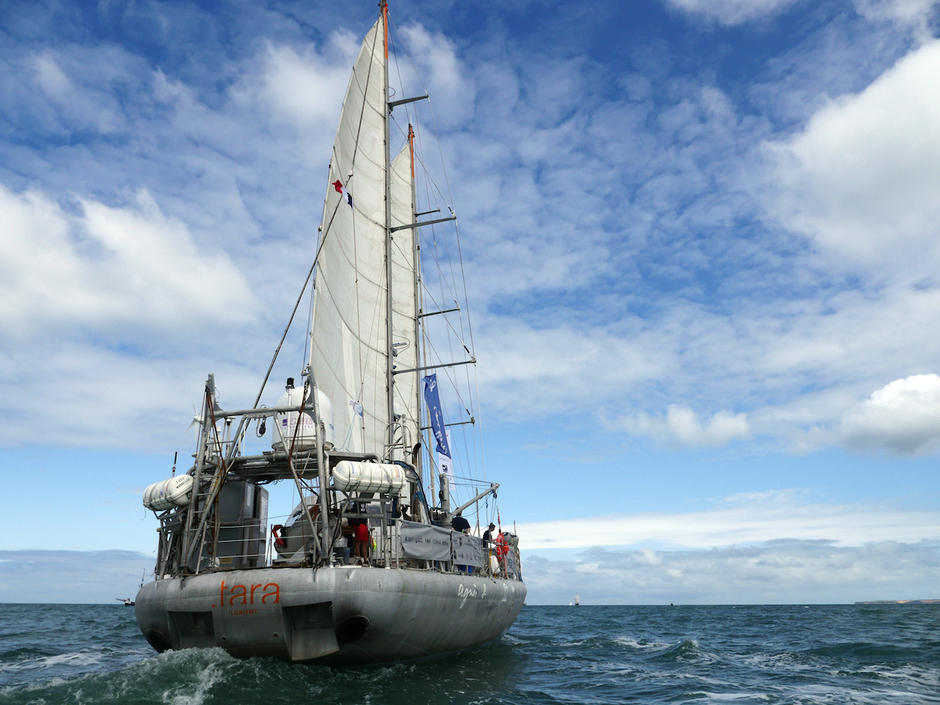
Environment and biodiversity
Location
Méditerranée
Sponsors
Célia Devinoy
Mathilde Nithart
Grant
€200,000 granted by the 18/06/2019 Board Committee
Project owner
Microplastics account for 94% of plastics found at sea. The crew of the famous schooner Tara knows this because they have been collecting it in their nets during their various expeditions since 2010. In 2014, they were confronted with the problem in the Mediterranean during an expedition already supported by the Veolia Foundation. The observations made have led it to go back to sea, from May to November 2019, to track the source of this very specific pollution.
Problematic fragments
Microplastics, which are the result of the degradation of plastic macrofuels, have numerous interactions with marine organisms: dispersal of potentially invasive species or pathogens attached to plastics, accumulation of toxic products in the food chain, etc.
It is to measure this impact that Tara will spend six months going up ten of Europe’s fifteen largest rivers. Sampling is planned at the mouth of the Thames (England), the Elbe and the Rhine (Germany), the Seine, the Loire, the Garonne and the Rhone (France), the Tagus (Portugal), the Ebro (Spain), and the Tiber (Italy).
6 months
10 rivers
18 ports of call
18 partner institutions
Over 100 scientists involved
Ten rivers with two objectives
This expedition should help identify the sources of pollution, understand their fragmentation in the rivers, and predict their dispersion into the ocean. The aim is also to understand their impact on marine biodiversity and their effects on the food chain.
The eighteen ports of call will also be an opportunity to discover the high-level scientific research carried out with the European Molecular Biology Laboratory (EMBL). A consortium coordinated by EMBL includes over a hundred scientists and eighteen partner institutions around the world focused on plastic pollution. The scientific management of the 2019 microplastics mission is provided by the ecotoxicologist Jean-François Ghiglione.
For more information: https://oceans.taraexpeditions.org/

